Text by Ryan Guenther, delivered at our June 27, 2021 service.
If you’ve been out around sunset in Vancouver you’ve probably seen a spectacular sight, the mass migration of thousands of crows to their night-time roost, the Still Creek Rookery. In the spring it coincides with rush hour, which is fitting because that’s exactly what it is.
Every day, crows spread out across the lower mainland, the same crows going to the same neighbourhoods to search for food, and each night they return to their home in Burnaby where it’s more affordable. They literally commute in from the suburbs for work.
Crows are perhaps the most human of birds. They’re capable of advanced problem solving, and they have complicated social structures. If you hear a large group of crows yelling their lungs out, there’s a good chance they’re trying to chase a predator away. And what is that except a form of organized protest? The only reason they aren’t holding signs is that they don’t have hands.
*
Alright, well I’m just gonna get straight into it. My mom has cancer.
There are a number of treatments for cancer, and they all suck. Chemo makes you nauseous, radiation makes you tired, immunotherapy gives you the symptoms of an autoimmune disorder, and surgery is where they cut you open and take out parts of your body that you were using.
Sometimes, the treatment is worse than the disease, at least in the short term, but we still go through it because the other option is death.
One cancer treatment that’s NEVER been tried, as far as I know, is to try and convince each of the cells in the body not to become cancerous, and for the cancer cells to go back to being normal. We’ve never tried to educate our cells about the dangers of becoming cancerous, despite the fact that if none of our cells decided to become cancerous, nobody would get cancer.
We don’t try and cure medical problems that way, because it’s objectively ridiculous. But we do try it with societal problems, almost exclusively.
At the beginning of the pandemic when the streets were empty and businesses were shut down, greenhouse gas emissions dropped by 17%. According to the UN’s report on climate change, we need to cut emissions by 45% by 2030, and 100% by 2050, to avoid literal Armageddon.
For years we’ve been told that to stop climate change, we all need to buy electric cars, and LED lightbulbs, and turn off the AC. After all, this is a problem “we” created therefor “we” each have to do our part to solve it. But that’s a lie.
When pretty much everyone in the world stopped driving entirely, it didn’t decrease emissions by even half of what’s needed. Because in reality, the richest 10% are responsible for half of all emissions, and just a hundred corporations are responsible for 70%.
Bitcoin, the digital currency/pyramid scheme, consumes more electricity than the entire country of Argentina.
Between 60 and 85 percent of the plastic in the ocean comes from commercial fishing, and we banned plastic straws.
We treat poverty and homelessness as personal failures, and tell poor people to get a better job, as if those exist, quietly ignoring the fact that wages have barely risen since the 70s while the cost of living has skyrocketed. If minimum wage had kept up with inflation, it would be $25 an hour, and if it was enough to buy a house in Vancouver it would need to be $110 an hour.
The murder of George Floyd sparked a wave of protests that lasted for months, along with a wave of diversity training, despite no evidence that diversity training has any impact on either diversity in the workplace, or implicit bias. The book White Fragility was at the top of the best seller list that whole time and racist cops haven’t stopped murdering black people, because even if it worked, they aren’t the ones reading the book.
But isn’t it better to do something rather than nothing? The problem is that there’s a tacit assumption that if we’ve done SOMETHING, we’ve done ENOUGH.
We banned plastic straws, and maybe in another couple years we’ll ban plastic bags, or even all single-use plastics. It’ll take an incredible amount of effort and dedication to overcome people’s resistance to each minor change, and it’ll barely even slow down the build-up of plastic in our oceans, because consumers aren’t the problem.
The idea that if we all do our part we can solve any problem, is predicated on the assumption that we’re all equally responsible, and equally powerful, and that assumption is false. And by presenting it as a collective problem, it deflects blame from the people who ARE responsible, and DO have the power.
Cancer treatment targets cancer cells. That seems obvious, but we need to apply that approach to societal problems. Contrary to the title of this talk, there are people who are personally responsible for the problems in the world, it’s just not us.
I don’t own a commercial fishing fleet, and I’ve added next to nothing to the floating garbage island in the Pacific.
You aren’t an oil executive, and your contribution to climate change is negligible. Pretending that all cells are equally responsible for tumors merely allows the actual cancer cells to grow and spread unchecked.
The world’s billionaires have gained over ten trillion dollars during the pandemic, while everyone else is suffering. They could solve most of the world’s problems with just the money they gained this year. They could feed the world, end homelessness, pay off everyone’s student loans and give everyone the vaccine and still be billionaires. But they won’t, and we don’t really expect them to, just like we don’t expect a tumor to stop growing.
So am I advocating that we start murdering billionaires? Obviously not, or at least not before we raise the inheritance tax to a hundred percent. But we do need to be honest about the power imbalance in our society and start acting accordingly.
We like to think that everyone is created equal, but that’s an aspirational statement, and not supported by evidence. A lot of how your life will go is determined by where you’re born and who your parents are.
Billionaires are the children of millionaires, and the rest of us will never be part of that world. If your life worked out for you, you didn’t just make good choices, you HAD good choices.
We don’t like to admit that, because it goes against our individualistic culture and our self-image as the architects of our own destiny. And because everyone from liberals to conservatives to outright libertarians loves not talking about class.
But people are not equal. We’re not equally powerful, and we’re not equally culpable.
The pandemic itself provides a perfect example. We’ve all been told to wear masks and stay home to stop the virus from spreading, so I wear a mask, but it doesn’t protect me. In fact, as long as I’m not sick, whether I wear a mask barely matters at all. The only people who need to wear masks and isolate themselves are the people who are infected.
But I also don’t have the power to make everybody wear masks, or send them to get tested, and I certainly can’t quarantine an entire city. And the people who do have that power, refuse to use it.
Other countries have done it, and all but wiped out the virus long before vaccines were available. Meanwhile it’s a year later and we’re still being encouraged to each do our part, just like with every other problem, and we still have COVID. And poverty. And pollution. And it’s not going to change unless WE change.
As our bodies age, they start to break down. You have less energy, you don’t learn as fast, you get injured and it never completely heals. On the inside you’re still a sprightly twenty-something who’d think nothing of running for a bus or helping move a couch, but reality keeps impinging on that perception in small ways, and you have to incrementally downgrade your own definition of healthy.
Intellectually I know that however bad I feel right now, this is still the healthiest I’ll be for the rest of my life, but deep down I kind of believe that someday my back won’t hurt and I’ll be able to throw a ball again.
And right now, it feels like we’re going through that as a society.
None of the problems in my lifetime have been solved. Not climate change, not the financial crisis or the housing bubble or the opioid epidemic, and not covid. We just kind of stop talking about one crisis when the next crisis hits.
But of course, not talking about it doesn’t mean it’s gone away, just like your blood pressure doesn’t magically go down when you get cancer. Instead, the new problem compounds the old, and the risk of side effects and drug interactions makes potential treatments more limited.
Last winter in Texas, a polar vortex knocked out power, froze water lines, made roads impassable for emergency vehicles, and of course, froze people to death.
The storm was a result of climate change, the infrastructure was decaying because of decades of underfunding due to privatization and deregulation, and it also happened in the middle of the pandemic, when hundreds of thousands had lost their jobs, their health insurance, maybe even their homes, and more than a few of them actually had COVID. The new crisis compounds the old, in an intersectional Armageddon.
Here in Vancouver, the opioid epidemic didn’t disappear when COVID hit. Instead, and unsurprisingly, a year of isolation, loneliness and anxiety was BC’s worst ever for overdoses, and more people died from drug overdose than from COVID, during COVID. But we don’t talk about it, because there’s a new crisis to talk about, but not solve.
We’ve tried to defeat the pandemic by encouraging each individual to do their part, and it hasn’t worked, but we keep doing it because it’s all we know how to do anymore. To quote the Simpsons, “We’ve tried nothin’ and we’re all out of ideas.”
We cling to the trappings of democracy, but the real power in our society is money. Our elected leaders have abdicated their power to the whims of the markets, to the point where now we can’t even manufacture our own vaccines for a disease that’s killing our citizens.
The answer to the age old philosophical question, why do good people do bad things, is capitalism. And I know what you’re thinking, “Tell us how you really feel.” Well, if I did that I’d get a visit from the RCMP.
But as an example of how capitalism solves problems, there’s a coal mine in Pennsylvania that’s been on fire for 60 years. They tried to put it out at first, but it was too hard, and would’ve been too expensive, so they just closed the mine and moved on. And anyone who was living there, whose job disappeared and whose house suddenly became worthless, well.
*
We are living in the age of denial. We’re beset on all sides by existential threats, and yet life goes on as usual, as if none of it’s real. Because if we truly accepted the severity and immediacy of climate change, or the rising fascist movement in the United States, or the true scale of wealth concentration in the world, it would necessitate an immediate and radical change in how we live.
Nowadays, once in a century weather disasters happen a couple times a year, and a lot of them are ironically, or perhaps fittingly, right in the centers of the fossil fuel industry. Texas froze over. Calgary flooded. Fort McMurray burned down. Whether you believe these are signs from god or merely the harbingers of the climate apocalypse, you have to admit they’re awfully on the nose.
Two years ago the town of Paradise California was destroyed by a forest fire caused by climate change and corporate negligence. Paradise, engulfed in flames. That’s simultaneously a metaphor and a literal description of events.
And of course, nothing was done and last year was California’s worst year ever for forest fires, many of them caused by the same utility company that caused the Paradise fire. And life goes on for those whose lives go on, because what else can we do?
Indi Samarajiva, a journalist from Sri Lanka, wrote about that country’s collapse and the parallels to what’s happening in the United States. His article begins:
“I lived through the end of a civil war — I moved back to Sri Lanka in my twenties, just as the ceasefire fell apart. Do you know what it was like for me? Quite normal. I went to work, I went out, I dated. This is what Americans don’t understand. They’re waiting to get personally punched in the face while ash falls from the sky. That’s not how it happens.
This is how it happens. Precisely what you’re feeling now. The numbing litany of bad news. The ever rising outrages. People suffering, dying, and protesting all around you, while you think about dinner. If you’re trying to carry on while people around you die, your society is not collapsing. It’s already fallen down.
I was looking through some old photos for this article and the mix is shocking to me now. Almost offensive. There’s a burnt body in front of my office. Then I’m playing Scrabble with friends.
There’s bomb smoke rising in front of the mall. Then I’m at a concert. There’s a long line for gas. Then I’m at a nightclub. This is all within two weeks.”
But of course, that’s just America. Canada isn’t as bad. Which is true, in its way, but less bad is still bad, and Canada is no more an island than any one of us.
Canadian patriotism is taking something that’s objectively terrible and celebrating it because it’s better than the American equivalent. We’ve stuck to the Paris Climate Accord, even if we’re on pace to meet our 2030 targets 200 years late. Our cops kill fewer people than American cops, but they still kill people.
And fewer people die of COVID here than south of the border, but tens of thousands have still died, and will die. Focusing on how our society is crumbling slower than America lets us feel superior, and if there are countries that aren’t crumbling, well, we just don’t talk about that.
More people will die of COVID in Canada this week than have died in Vietnam since the start of the pandemic. Right now we’re acting like the vaccine is a magic spell that will make everything go back to normal, and reacting to the reports about resistant variants the same way we did the original reports out of Wuhan. Which is to say, not at all.
There are countries that were having sporting events and music festivals with full crowds LAST SUMMER, meanwhile we’re in year two of self-imposed solitary confinement to protect ourselves, because no one else will.
And we pretend like those countries don’t exist, or that there’s something special about their geography or their population, because that’s the only way what’s happening here can possibly be acceptable.
I will fully admit that I’m living in denial of climate change. It’s too big, and there’s nothing I can do about it, and if I think about it too much I’d be angry literally all the time, and that’s not healthy.
Whether I play videogames five hours a day or spend that time pacing and muttering about billionaires, I’m still probably gonna die in a food riot in 20 years. Denial is natural, and perhaps, necessary.
It’s not that surprising, then, that some people are in denial about the pandemic. After all, when you’re already living in denial about several other crises, what’s one more? What’s so special about COVID that it warrants a massive change in how we live, when climate change doesn’t?
And really, how much denial is too much? Our government’s position is that the pandemic isn’t serious enough to shut everything down for a month, but it’s serious enough that we all need to live in isolated limbo, indefinitely.
I haven’t seen my family in a year and a half, and as I may have mentioned, my mom has cancer. I haven’t seen most of my friends since the fall or done standup since last spring. In fact, up until a month ago the only person my wife and I saw regularly other than each other was a personal trainer, because apparently it’s less risky to hang out indoors with people if you pay them.
We’ve all lost a year of our lives, and we’re LUCKY if that’s all we’ve lost. Solitary confinement for longer than 15 days is considered torture by the UN. And while we aren’t actually imprisoned, it’s also been a lot longer than 15 days, and it’s going to leave a mark.
So is there no hope, are we just doomed? Yes, probably. But the lack of opportunities for compromise and half-measures can be liberating, and deadlines focus the mind. My mom talked about writing a book for years, but when she knew she was going to die she actually sat down and wrote it.
We’ve all been focused on doing our own thing for the last half century and it’s brought us to the brink of extinction on multiple fronts. It might be time to try working together again.
Municipalities which had Black Lives Matter protests saw a dramatic decrease in people killed by police, and cities with larger and repeated protests saw greater declines.
When Texas froze over, the government’s response was slow and ineffectual, and what actually helped was regular people, pulling together. Community organizations and left wing groups distributed food, fuel, blankets, whatever they could collect to whoever needed it. Even in Texas, the most individualistic state in the most individualistic country in the world, people pulled together in a crisis.
We like to think of ourselves as individuals, that everyone is unique, but that’s another lie.
*
Fringe theater festivals are completely un-juried, meaning that the line-up is determined by a random draw and anyone who gets in is given 60 minutes to do absolutely anything they can think of. And it turns out that what they can think of ends up being almost exclusively the same dozen or so types of shows.
A friend I met on tour pointed out that every festival has at least one locally produced, zombie-themed musical, and for the rest of the tour I looked out for that, and he was right. Nobody made them do it and they didn’t talk to each other, but they all independently decided to do the exact same thing. It was just what was in the air that summer.
We aren’t as unique as we think, and we aren’t as independent as we pretend. Surely a year of living separated has driven that point home.
One of the major obstacles to change is the fear of losing what little we have left, but people who’ve already lost everything are less resistant to change. Since we’ve started talking about truth and reconciliation with indigenous people, it got me thinking about what real restitution for stealing all of North America might actually look like, and I realized that I have very little skin in the game. The unspoken assumption whenever it’s brought up is always “Well, obviously we can’t give all the land back.” But for me, personally? I’m fine with that.
Without a massive market collapse I’ll never own a home in this city, so go ahead, give all the land back. It won’t affect me AT ALL. The chances that my new indigenous landlord kicks me out are probably lower than my current landlord.
They want the land back, let ‘em have it. Nationalize the oil industry and shut it down? Fine, whatever. Break up Amazon and Facebook and Google? No skin off my nose. Seize every billionaire’s assets and throw them in jail for tax evasion? Do you need a ride?
It can be liberating to give up on vain hopes. You’re more likely to become homeless than a billionaire, and the younger you are the more true that is. And even if you do manage to get rich before everything falls apart, it won’t save you. There are so many things we need to give up on, so that we don’t give up on what matters. In the words of Antonio Gramsci, what we need is “Pessimism of the intellect; optimism of the will.”
In a subsequent article about the parallels between the American and Sri Lankan collapse, Indi Samarajiva made the point that these kinds of problems aren’t solved in a month, or a year, or even a decade. It takes GENERATIONS. He wrote:
[You’re] simply thinking about this all wrong. You’re thinking about yourselves, how this affects you, how you can get back to normal life. I’m sorry, but that’s all gone. My parents never got their carefree life back, but their grandchildren did.
You have to start thinking generationally. This may actually help your mental state because — while difficult — generational change is at least not impossible. You’re trying to change everything right now and the only thing that’s going to give is your brain.
Do you know how long Sri Lanka’s collapse took? My entire life. I was born into chaos, grew up with it and only got out — quite disoriented — around thirty years old. You’re thinking that you’re going to fix America, but it’s not about you. You broke the damn thing. Just don’t break it anymore and help future generations.
These days saying “think of the children” is both a cliché and a Puritanical cudgel, but that’s really what it comes down to. What kind of world will be left for your grandchildren and great-grandchildren, and is your stock portfolio worth more than that?
*
If you had major surgery, you wouldn’t try to start running around, doing everything you used to do, as soon as you woke up. There needs to be a recovery period, on a generational scale. But first, we need to have the surgery.
Those of us alive today don’t need to solve all the problems. We merely need to let go of the system that’s causing them, so that our children, and their children, can begin to heal the world.
Indigenous peoples on every inhabited continent except one lived in harmony with their environment for millennia, and probably would’ve gone on doing it if they hadn’t been rudely interrupted.
It can be done, just not with our current system, and maybe not with cars and overnight delivery and a new phone every two years. But that’s ok, because you won’t be able to drive when your car’s under water, and there’s no cell reception in hell.






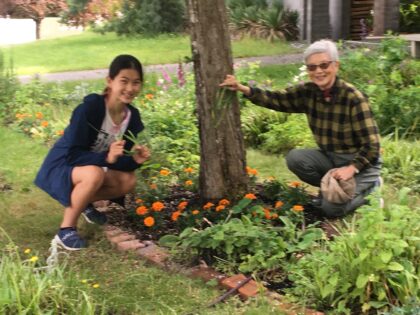
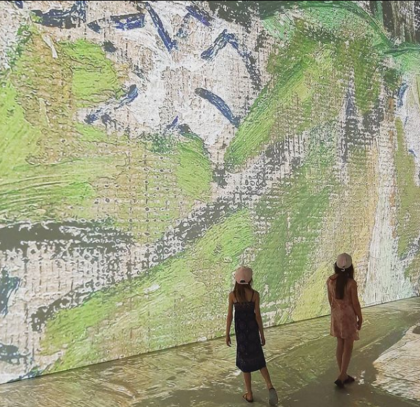
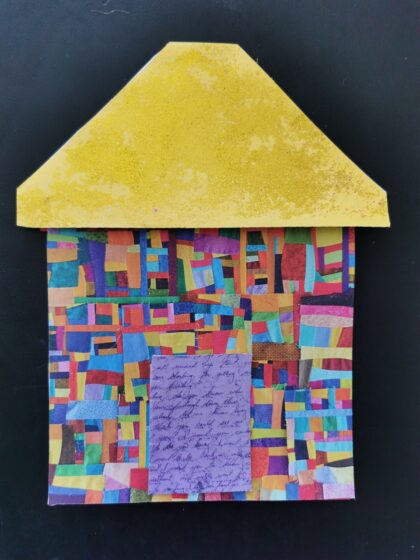 Here’s what she says:
Here’s what she says: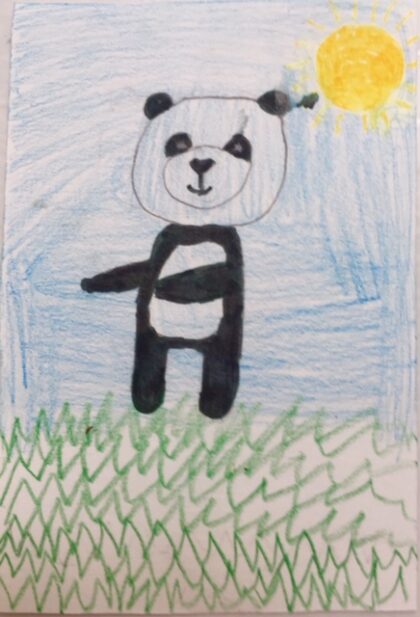
 Charlotte and Eva and Mr. and Mrs. Chickadee’s Adventures
Charlotte and Eva and Mr. and Mrs. Chickadee’s Adventures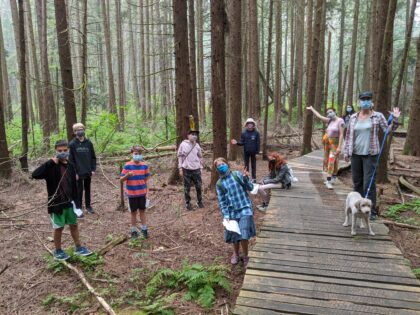
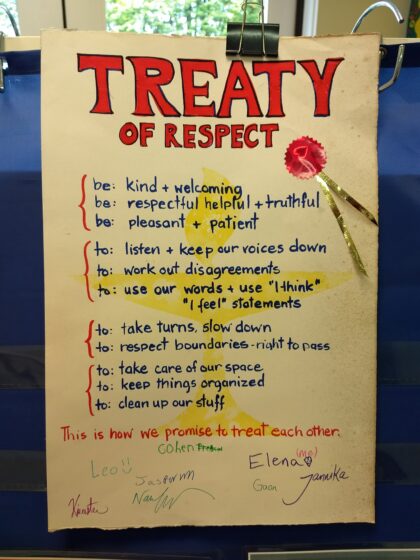
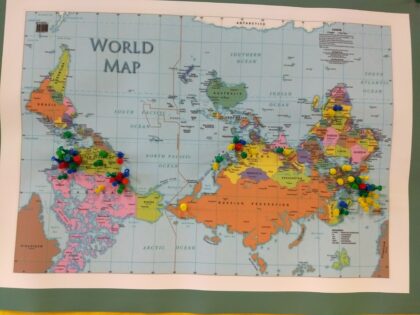



You must be logged in to post a comment.